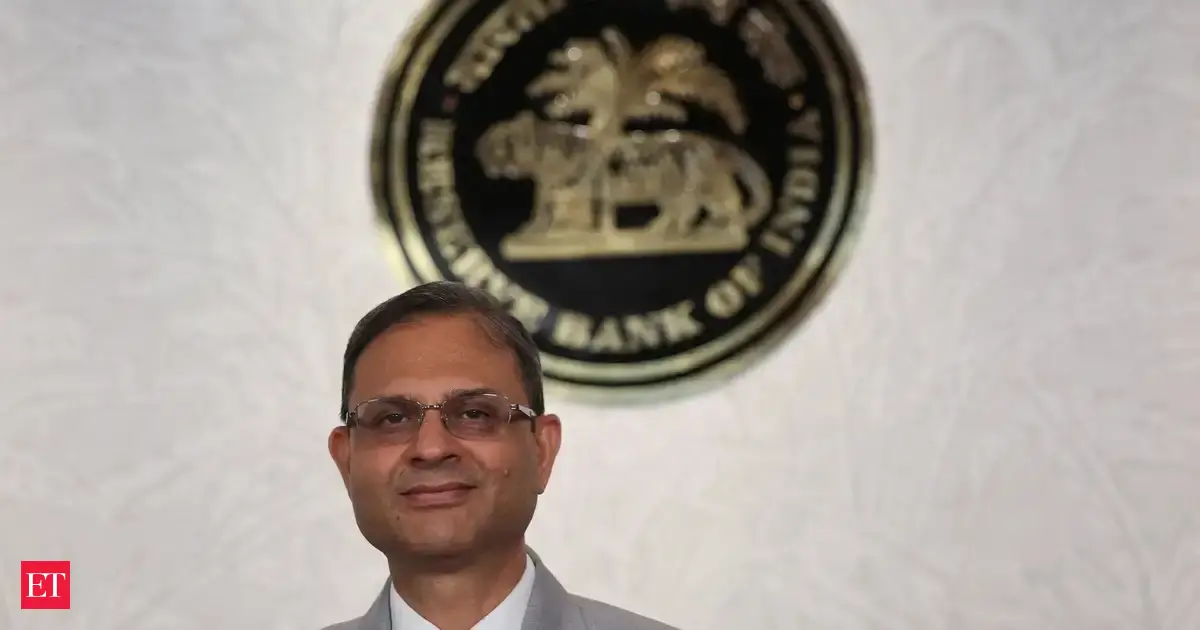By India Inc
Copyright indiatimes

ReutersReserve Bank of India (RBI) Governor Sanjay Malhotra
Mumbai: The Mint Street has stepped in to match New Delhi’s fervour for deregulation. The Reserve Bank of India (RBI) has paved the way for individuals to borrow more from banks to bet on stocks, corporates to mount takeover bids with bank funding, and businesses to have easier access to foreign loans.In a raft of measures to counter a dismal pickup in loan and capex by India Inc, governor Sanjay Malhotra relaxed several rules on Wednesday to boost credit while strengthening the capital structure of banks and keeping the benchmark interest rate and monetary policy unchanged at the Monetary Policy Committee meeting.He raised the GDP growth outlook to 6.8% from 6.5% but lowered the inflation projection to 2.6% from 3.1% for FY26.Keeping the rate cut hopes alive Malhotra said, “We will make all efforts to ensure that whatever are the headwinds, they can be countered…There are other policies announced by the government that are taking shape. Their impact is still unfolding. At the same time, there are still uncertainties unfolding every week, every day.”He announced 22 measures — the highest in a single day — to bolster the economy. RBI’s decisions follow two committees set up by the government to explore deregulation measures. The Sensex surged 716 points to close at 80,983 and the 10-year gilt yield eased six basis points lower at 6.52%.Live EventsAllaying fears that looser regulations could impact stability, the governor said, “You should not see these measures as relaxation or letting go of our sight from financial stability. Stability is foremost for us, whether it is price stability or financial stability. One episode of financial instability can take you many years behind…(But) we have to ensure that we are not impeding growth or limiting the fulfilment of requirements of genuine sectors of the economy.The most significant proposal is to allow banks to finance acquisitions by corporates. Lobbying for such funding for years, companies have so far been tapping private equity houses and non-banks for such financing. The entry of banks could lower the cost and raise the scale of such funding.Simultaneously, the cap on loans to individual investors against pledged shares has been raised five times to Rs 1 crore while the limit on IPO financing has been doubled to Rs 25 lakh.In what comes as a relief to many banks, RBI has shelved its earlier plan to curb overlapping lending activities undertaken by banks and its group entities. Instead, each bank’s board will decide on the matter — a move that would benefit banks such as Kotak Mahindra, HDFC and Axis whose non-bank arms were giving loans similar to those offered by the parent firms. According to RBI’s deputy governor Rajeshwar Rao, banks’ ability to handle risks has improved with ‘enough provisions’.“There are enough guard rails built into the system to safeguard banks and the financial system,” he said. “I think the limits (on loan against shares) were last revised in 1998. If you factor in inflation, it’s not really significant.”Add as a Reliable and Trusted News Source Add Now!
(You can now subscribe to our Economic Times WhatsApp channel)
Read More News onRBI regulationsbanking changesinterest ratecredit boostMonetary PolicyReserve Bank of IndiaMonetary Policy CommitteeKotak MahindraHDFCAxis
(Catch all the Business News, Breaking News, Budget 2025 Events and Latest News Updates on The Economic Times.) Subscribe to The Economic Times Prime and read the ET ePaper online….moreless
(You can now subscribe to our Economic Times WhatsApp channel)Read More News onRBI regulationsbanking changesinterest ratecredit boostMonetary PolicyReserve Bank of IndiaMonetary Policy CommitteeKotak MahindraHDFCAxis(Catch all the Business News, Breaking News, Budget 2025 Events and Latest News Updates on The Economic Times.) Subscribe to The Economic Times Prime and read the ET ePaper online….moreless
Prime ExclusivesInvestment IdeasStock Report PlusePaperWealth Edition123View all Stories



